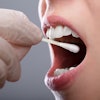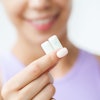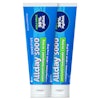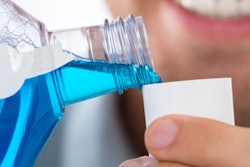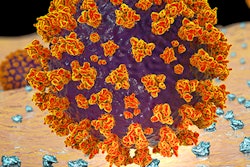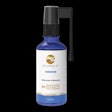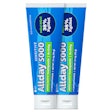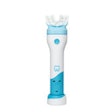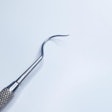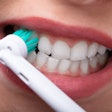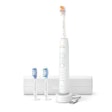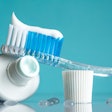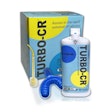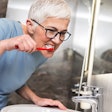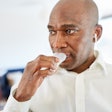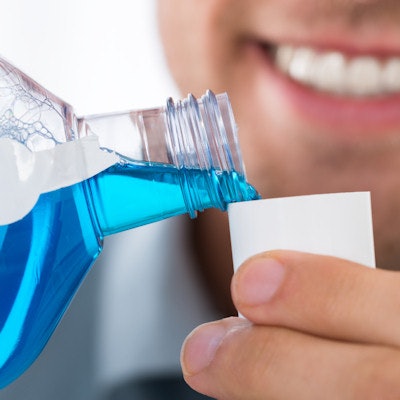
Over-the-counter mouthwashes containing cetylpyridinium chloride or ethanol/ethyl lauroyl arginate killed SARS-CoV-2 within 30 seconds of exposure to the virus in lab tests, according to a study published on November 13 on the preprint server bioRxiv.
Two Venture Life Dentyl mouthwashes, which contain cetylpyridinium chloride (CPC), and Johnson & Johnson's Listerine Advanced Gum Treatment, which contains ethanol/ethyl lauroyl arginate, eliminated the novel coronavirus after a 30-second treatment, according to preliminary findings. The results have not been certified by peer review and should not be used to guide clinical practice at this time. They were released ahead of a clinical trial that is studying whether Dentyl mouthwashes can reduce the viral load of SARS-CoV-2 in the saliva of patients, according to the authors.
"Two Dentyl mouthwashes containing CPC, and Listerine Advanced (23% ethanol) with ethyl lauroyl arginate (LAE), a cationic surfactant, eradicated the virus completely," wrote the group, led by Evelina Statkute from the Systems Immunity University Research Institute at Cardiff University in the U.K.
Many choices
Evidence has suggested that the oral cavity is a strong site for infection and transmission of the novel coronavirus. Dental teams have encouraged patients to gargle with a variety of different rinses, including povidone-iodine products and chlorhexidine mouthwash, prior to treatment to help curb the spread of the virus. However, scientists continue to look for new options as they learn more about SARS-CoV-2.
In the current study, the researchers used lab assays to imitate the conditions of a patient's nasopharynx and oropharynx passages and tested seven over-the-counter mouthwashes.
The following mouthwashes destroyed live SARS-CoV-2 after a 30-second treatment:
- Dentyl Dual Action, which contains 0.05%-0.1% CPC
- Dentyl Fresh Protect, which contains 0.05%-0.1% CPC
- Listerine Advanced Gum Treatment, which contains 23% ethanol with ethyl lauroyl arginate
The three mouthwashes eliminated live virus to EN 14476 (European virucidal efficacy success) standards of > 4-log10 reduction. Other rinses that contained ethanol/essential oils and povidone-iodine eliminated the virus by 2-3-log10, according to the authors.
In addition to the ingredients, the amounts made a difference in reducing viral activity. Ethanol alone at less than 23% wasn't enough to kill the virus. For example, Listerine Cool Mint, which contains 21% ethanol and essential oils, was only moderately effective at reducing the virus. The researchers believe that the higher level of ethanol as well as the addition of ethyl lauroyl arginate in Listerine's advanced formula increased its effectiveness. Products that contained povidone-iodine also had a moderate effect, though chlorhexidine had little or no ability to inactivate the virus in this test, the authors noted.
Next, testing in humans
The study had no limitations, and the early findings are promising and deserve further exploration to determine whether the mouth rinses can inactivate the virus in humans, the authors wrote.
"Our in vitro data identifies products with high activity, and indicates that investigating the duration of their effects in vivo against live virus load, and defining potential effects on reducing the risk of virus exposure within the clinical setting ... in well-designed, randomized controlled trials is warranted," they concluded.
Study disclosures
The authors noted that Venture Life Group provided information on mouthwash formulations used but did not have any role in the study, including funding. Venture is funding a separate Cardiff University study that is assessing in vivo efficacy of cetylpyridinium chloride in patients with COVID-19.

